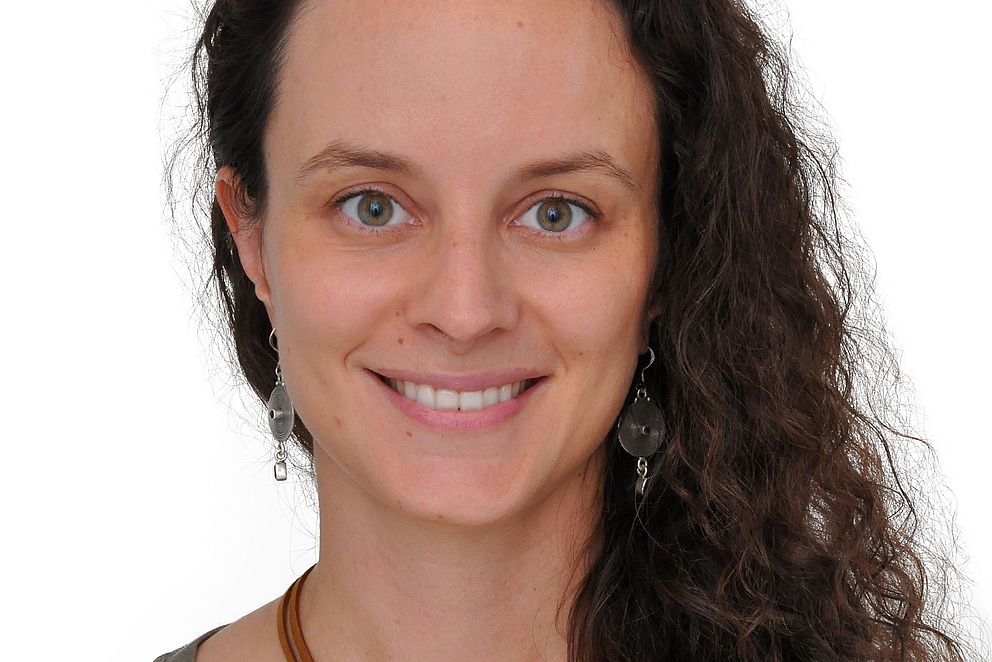
Ecosystem restoration plays a major role in the UN’s Sustainable Development Goals for 2030. Recognising the importance and restoration of degraded ecosystems is pivotal to combatting climate change, especially in Brazil, which hosts between 15 and 20 percent of the world’s biological diversity.
During the presidency of Jair Bolsonaro, Brazil saw a dramatic increase in deforestation and environmental destruction. The 2022 presidential elections were also a race for or against climate protection. In his victory speech, newly elected president Luiz Inácio Lula da Silva promised an end to deforestation in the Amazon rainforest, a crucial resource for regulating global CO2 levels.

Climate Protection Fellowship
Mayra Flores Tavares is a fellow of the International Climate Protection Fellowship – a programme for prospective leaders and postdocs with climate expertise who want to realise a 12–24-month project in Germany.
Fellows need an academic host in Germany. A host can be anyone who works at a public or private institution in Germany like universities, NGOs or other companies.
Mayra Flores Tavares, International Climate Protection Fellow from Brazil, focuses her research on private landowners who are one of the main stakeholders in ecological landscape restoration. She aims to comprehend the motivation and social characteristics of rural landowners who have decided whether or not to restore their land. This will allow her to design mobilisation strategies to increase rural landowners’ engagement in ecological restoration. In her project, she concentrates on the Atlantic Forest biome – a global diversity hotspot and home to 70 percent of Brazil’s population. Mayra Flores Tavares’ research is being supported by the Chair of Silviculture at the University of Freiburg. She is also a participant of the sixth Communication Lab on “Dwindling Resources – Growing Conflicts” – a programme of Humboldt Foundation and the International Journalists’ Programmes to foster the dialogue between science and media on current global issues.
Humboldt Foundation: What are your hopes for the protection of the tropical forests in Brazil after the election of Lula da Silva?
Mayra Flores Tavares: The defeat of Bolsonaro represents a victory for diversity and biodiversity in Brazil. It is the end of a government that only promoted destruction. In this new cycle, I expect the environmental protection structure to be reconstructed, with the return of environmental inspection, transparency, and public policies that encourage public participation and restoration of the native vegetation of all Brazilian biomes.
I hope to see the forest standing and valued. I hope to see the demarcation of indigenous land. I hope to see investment in sustainable rural development and the valorisation of the rural owners who protect their forests. I want to see the government hand in hand with those who help with conservation and restoration: communities, indigenous peoples, rural landowners, and NGOs. Finally, the new president's first speech addressed environmental pacification, bringing relief and encouragement after four years of environmental negligence. It is time to act, and we have a lot to reconstruct. We need to fight for all these hopes to become reality.

Mayra Flores Tavares holds a Master’s in Forest Resources from the University of São Paulo, Brazil. For the last nine years, she has been working on the ecological restoration of the Atlantic Forest in Brazil for different institutions such as NGOs, cooperatives, and government. Currently, she is a fellow of the Climate Protection Fellowship at the University of Freiburg in Germany. Her research focuses on the social aspects of ecological restoration in Brazil’s Atlantic Forest.
For further insights on the Brazilian elections, the state of science communication and the challenges of climate research and reporting see the first episode of the Humboldt Bench Talks.

